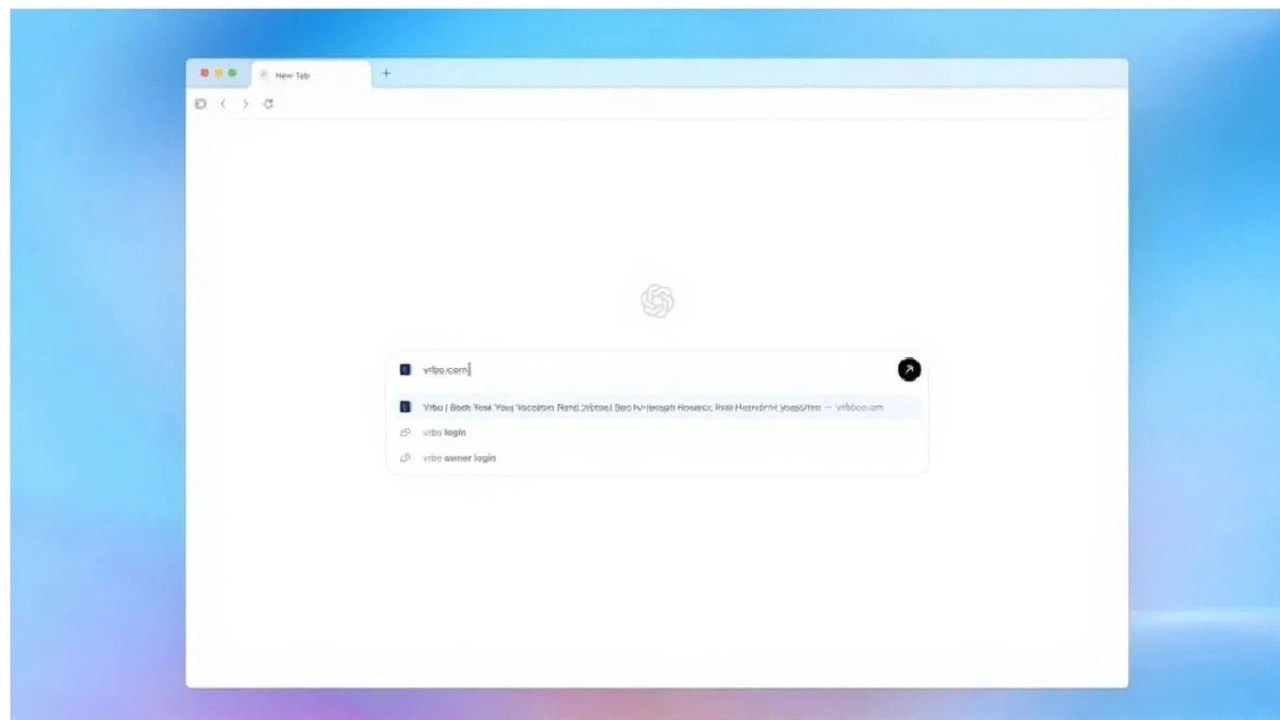When OpenAI, the AI research firm headquartered in San Francisco, launched Atlas Browser, it also introduced Agent Mode for ChatGPT Plus subscribers. The preview, which rolled out on 12 April 2024, turns the ordinary web browser into a hands‑free AI assistant that can search, summarize, and even book appointments without you having to click through endless pages.
Why Atlas Browser Matters
Here's the thing: traditional browsers are passive tools. You type a query, the engine spits out links, and you decide what to click. Agent Mode flips that script. Instead of you orchestrating every step, the AI takes the wheel, proposing actions and waiting for a clear "yes" before it proceeds. In practice, that means a market‑research analyst can ask the browser to compare the latest smartphone specs across three e‑commerce sites, and the AI will fetch the data, generate a side‑by‑side table, and even flag any price anomalies—all in under a minute.
How Agent Mode Works
The magic lives in a persistent sidebar that appears on every page you visit. When you open a new tab, the sidebar greets you with a compact chat window. Type a request—say, "Summarize this research paper"—and the AI instantly parses the page’s HTML, runs its language model on the content, and delivers a concise bullet‑point summary.
- Permission prompts: Before any form is submitted, a pop‑up asks for explicit consent.
- Isolation: All Agent Mode actions run in a sandbox that doesn’t touch your browser history.
- Logged‑out mode: For high‑risk sites like banking portals, the browser can operate without any saved cookies or authentication tokens.
Because the AI never writes files to your hard drive, the feature complies with strict corporate data‑handling policies—a point highlighted by early enterprise testers.
Privacy & Security Guarantees
Security‑first was the mantra during development. According to the technical brief from M1-Project, Agent Mode cannot access local storage, execute arbitrary code, or install extensions. Every page visited during a session is kept out of the standard browsing history, and the sandbox environment erases itself once you close the tab.
Turns out that the logged‑out mode is more than a gimmick. In a demo with a mock financial dashboard, the AI was able to pull public earnings tables, calculate year‑over‑year growth, and draft a brief memo—all without ever logging into a user account. That level of isolation is rare for consumer‑grade AI tools.
Real‑World Use Cases
Industry analysts, quoted by both M1-Project and the podcast Youreverydayai, have already mapped out several high‑impact scenarios:
- Competitive intelligence: A product manager asks the browser to pull pricing data from three rival sites, then auto‑generates a SWOT analysis.
- Academic literature reviews: A PhD candidate feeds a list of DOI links, and the AI extracts methods, results, and citations into a spreadsheet.
- Recruitment pipelines: By feeding a public LinkedIn URL, the AI drafts a résumé highlighting key achievements, ready for a quick edit.
- Travel planning: The assistant checks flight prices, books a calendar entry, and even drafts a packing checklist.
Oddly enough, early adopters report that the time saved on repetitive web‑research tasks jumps from a modest 15‑20 % to as much as 45 % once they get comfortable with the permission workflow.
Industry Reaction
When the preview announcement hit the newswire, analysts at TechInsights noted that OpenAI is effectively building the first “agentic” browsing layer that could become a new revenue stream for the company. While the service is locked behind the $20‑per‑month ChatGPT Plus subscription, OpenAI also offers a “Pro” tier for teams and a “Business” tier for enterprise deployments. The pricing model suggests the firm expects corporate clients to pay a premium for the sandboxed, compliance‑ready environment.
But wait—some privacy advocates remain skeptical. They argue that even with sandboxing, the AI still processes potentially sensitive data on OpenAI’s servers, raising questions about data residency and cross‑border transfers. OpenAI has responded by promising end‑to‑end encryption for all Agent Mode traffic, though the technical whitepaper is still pending.
Future Roadmap
OpenAI hasn’t set a firm launch date for the full version, but the roadmap hinted at two major upgrades:
- CRM integration: Direct hooks into Salesforce or HubSpot, allowing sales reps to auto‑populate leads from web searches.
- Financial‑API support: Real‑time market data feeds that the AI can use to generate investment briefs on the fly.
The company also plans to broaden language support beyond English, aiming for a multilingual rollout by early 2025. If those plans materialize, the agentic browser could become a staple in multinational research teams.
Key Facts
- Launch date: 12 April 2024 (preview)
- Pricing tiers: ChatGPT Plus $20/month; Pro and Business pricing undisclosed
- Primary entities: OpenAI, Atlas Browser, Agent Mode, ChatGPT Plus, M1‑Project, Youreverydayai
- Privacy safeguards: No local file access, no code execution, no history logging, isolated logged‑out mode
Frequently Asked Questions
How does Agent Mode differ from the regular ChatGPT web‑search tool?
Agent Mode operates inside a sandboxed browser, letting the AI perform actions like form submissions, data extraction, and calendar bookings, whereas the standard ChatGPT web‑search merely returns links or text snippets without interacting with the page.
Can I use Atlas Browser on a corporate network with strict firewall rules?
Yes. The logged‑out mode runs without cookies or authentication tokens, which means it can access public sites even behind firewalls, and the sandbox ensures no data is written to the local machine.
What happens to the data the AI processes during a session?
All content is transmitted over end‑to‑end encryption to OpenAI’s servers for processing, then discarded once the session ends. No files are stored locally, and no browsing history is kept.
Is there a free trial of Atlas Browser’s Agent Mode?
OpenAI currently limits the preview to paying subscribers of ChatGPT Plus, Pro, and Business. A free‑tier trial has not been announced, though the company may roll one out when the feature leaves preview.
Will Agent Mode support non‑English languages?
The roadmap mentions a multilingual expansion slated for early 2025, so users can expect support for major European and Asian languages within the next year.

